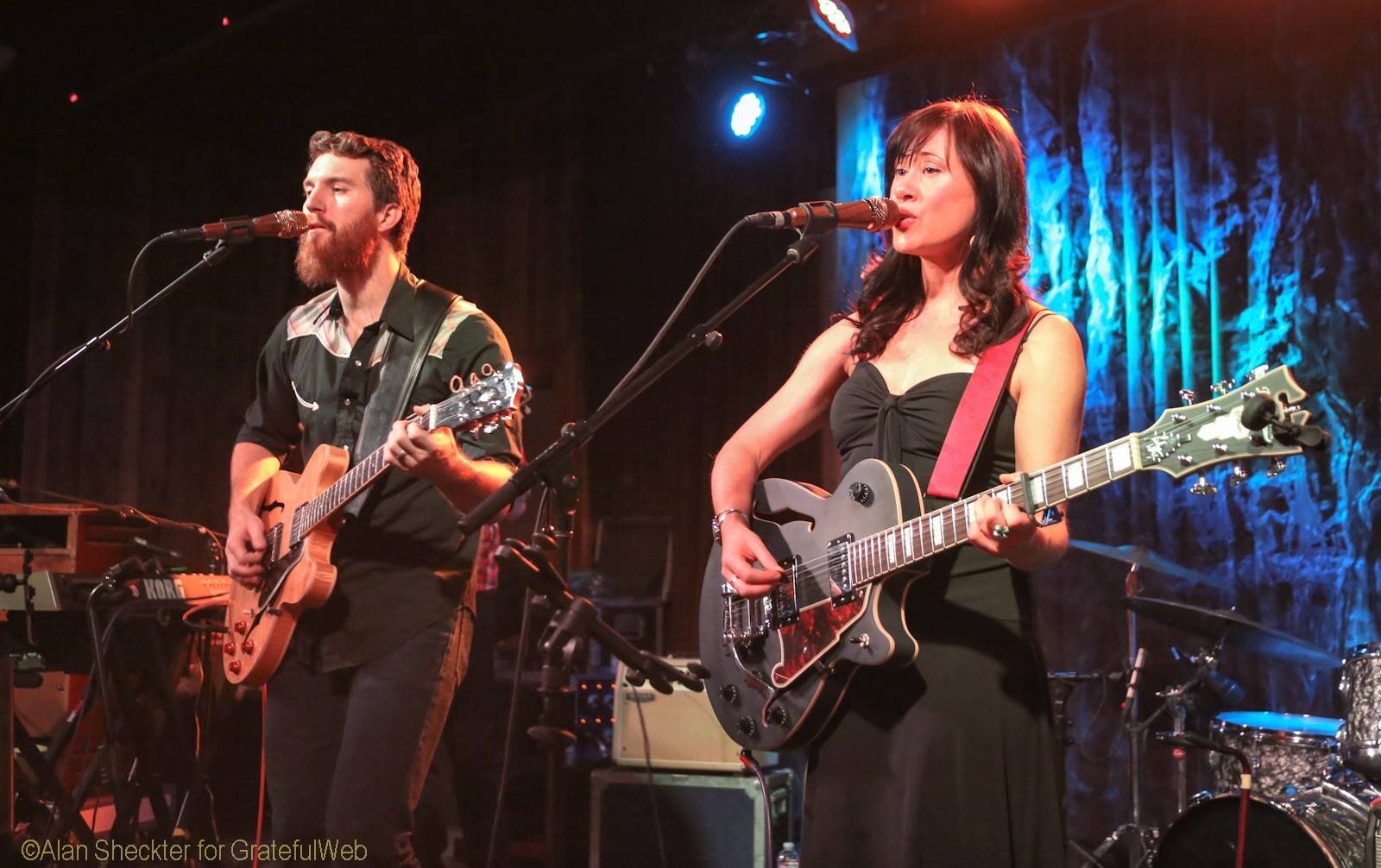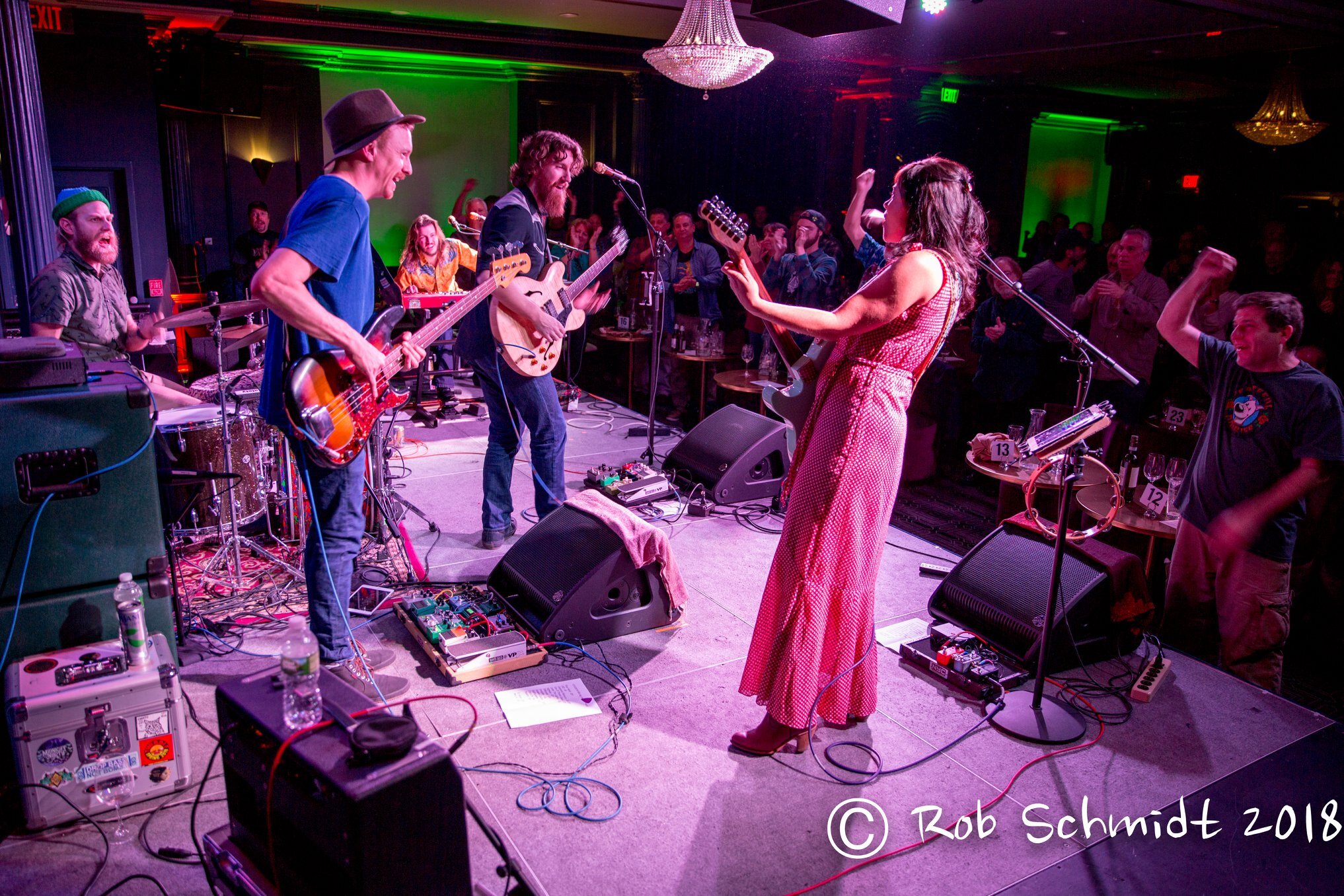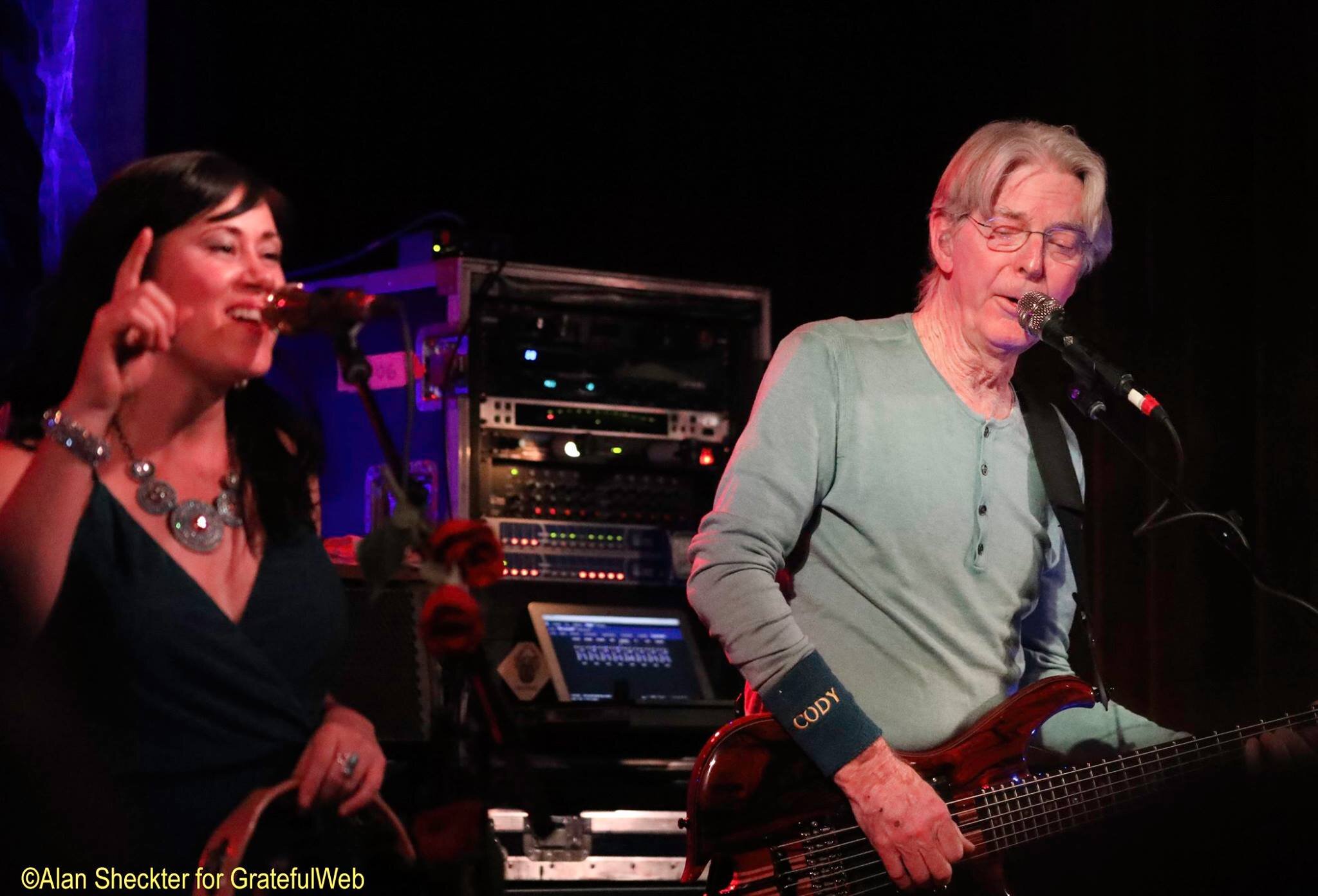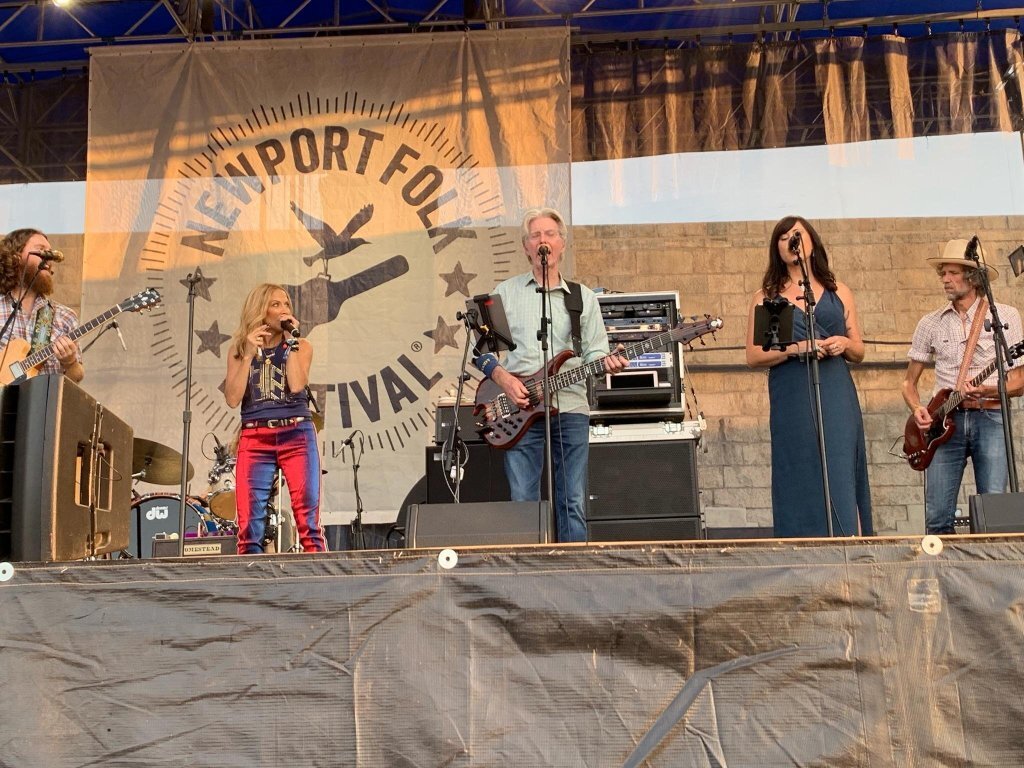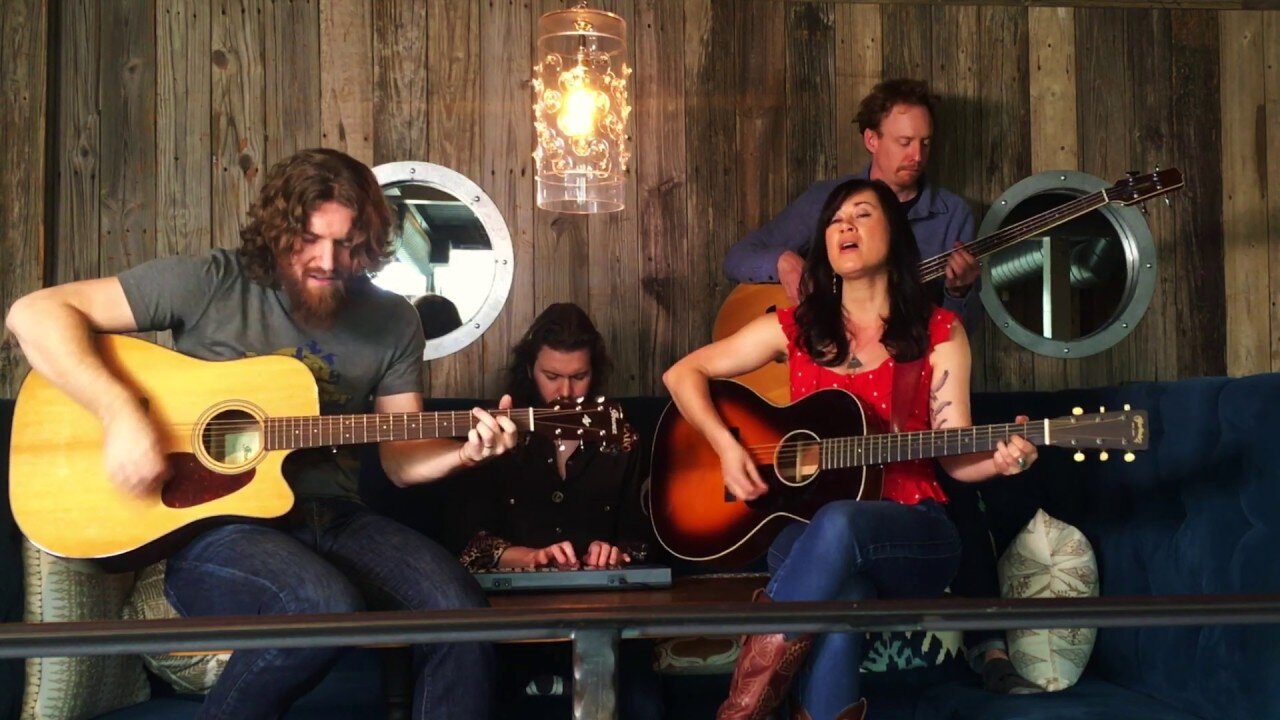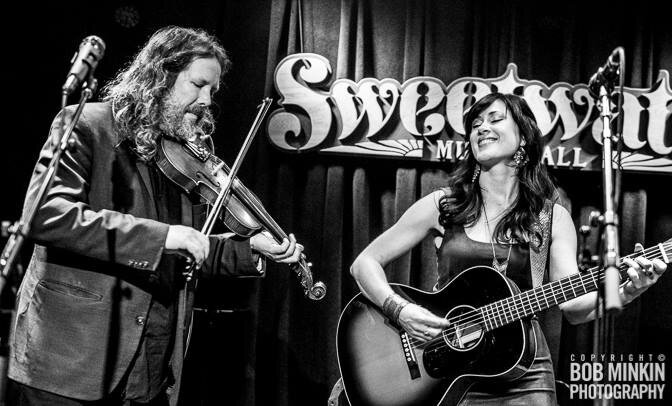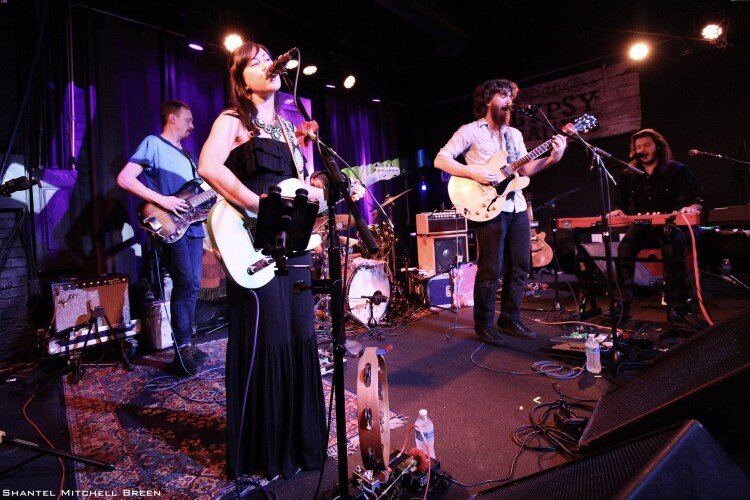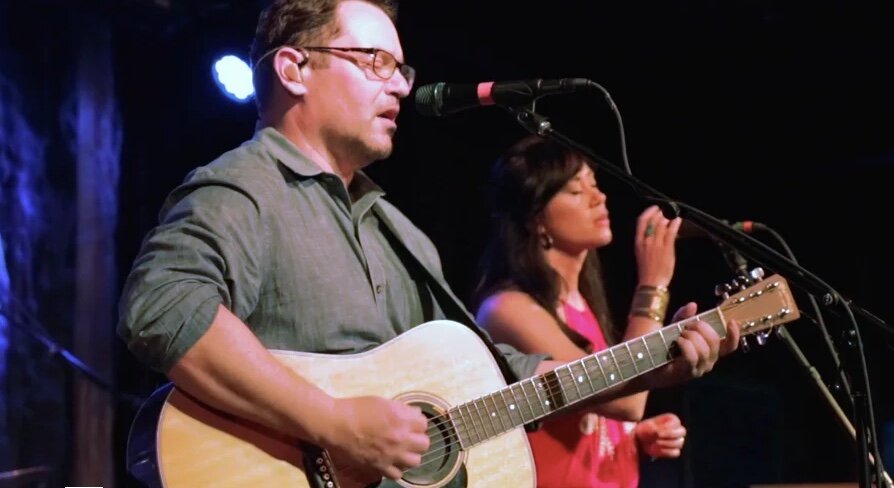Your Lore Chapter 9: Elliott Peck
Your Lore Chapter 9: Elliott Peck
RG: When you and I first met, I remember having a compelling conversation about the challenges of committing oneself to one's "art." How old were you when you first felt the tug of music as the "master" of your destiny? How did music come to you - was it a band that caught your attention a friend or family member? How did you learn to sing - did you take lessons or did music just kind of come out?
EP: Music has always been a big part of my life and my family since as long as I can remember. My grandmother was a phenomenal organ/piano player as well as a strong singer. She performed with the Indianapolis choir and played at church. She was one of my first musical influences and taught me how to harmonize and play piano at a young age. I always involved myself with music anyway I could growing up, I signed up for choir, piano lessons, musicals, anything that was available, it was my main motivation for going to school. My uncle helped my dad pick out a guitar for me in high school and that was when the idea of songwriting became more intriguing and accessible. To this day I find the acoustic guitar to be my best songwriting tool. While I apply some of my classical training to my current writing and playing, I think I am strongest at learning by ear. I remember trying to sing harmonies on every song I liked, or improvising vocally as I sang along to songs. Listening and then emulating some of my favorite singers was one of my best training exercises and allowed me to develop an ear for melody and harmony early on. Singers/songwriters that have strongly influenced me are; Sarah Vaughan, Koko Taylor, Etta James, Emmylou Harris, Joni Mitchell, Patsy Cline, Robert Plant, Johnny Cash, Willie Nelson, Gram Parsons, Brandi Carlile, Jason Isbell, Gillian Welch, Susan Tedeski, Bob Dylan, John Prine & Hayes Carll.
RG: One of the things I admire about you is how easily you toggle back and forth from playing a support role to leading a band. From where I sit it takes a certain psychological strength (read: the ability to tuck one's ego away) as well as musical ability to go back and forth. Do you just hear harmony sitting there for the taking or do you have to work at it? Do you prefer leading a song to supporting one or do you like the mix?
EP: I have experience working as both a solo artist, as well as a member of a group. There are certainly advantages to both. I think one of the things I enjoy about being in a band that everyone has a stake in, is the ability to flow creatively with the members. When you have hired musicians to play your songs, there is a certain level of investment people bring to the gig or recording project. When you have a group of musicians who will release the songs under a name together and play them live, people tend to put forth more creative effort and more of their personal style, which can really elevate the music and allow ideas to be shared more fluidly. As a solo artist you are typically also the band leader and making most of the creative decisions, which can sometimes allow for things to be more efficient, but ultimately I think we all benefit from other's ideas & perspectives, so I appreciate the opportunity to write, create and perform with my band Midnight North. In that band I write & sing lead on songs, I also take a support role on some songs. I think when you have a strong musical partnership as Grahame Lesh & I do, you can enjoy the support role just as much as the lead. I love adding harmonies and textures in my playing that add to the song and lift the person that is leading. I often put in as much effort writing harmonies as lead melodies. I think a beautiful harmony can strengthen a song and lift a melody line to make it even stronger than it is on its own.
RG: I know you play both acoustic and electric guitar. Is there one your feel more comfortable on? Do you play other instruments?
EP: I have been playing acoustic guitar far longer than electric, and I find them to be very different instruments, and as Scott Law says, with electric you are playing both a guitar and an amp, so there is much more to work with in terms of sounds and tone. I made the switch to electric for most of our Midnight North sets because I wanted to have a voice on the guitar and not just be a background layer. I've tried a few different guitar/amp combos but have happily landed with a Telecaster and Princeton. I like how it is a clean sound that cuts through and is a nice compliment to Grahame's full warm sounding Gibson. I still write mostly on acoustic, and I play a Martin CEO-7. It sounds best played with no amplification just in a room with a voice. I think that's when I feel most inspired to write, just playing at home when it's quiet.
RG: I think of myself as a singer/songwriter who happens to play guitar vs say a guitar player who also sings and writes songs. Do you feel the same?
EP: I picked up a guitar for the first time and really tried to learn it when I was about 15. Once I learned most the basic chords in first position, I was able to play and sing along to many of my favorite songs and to begin writing and creating my own songs. I am definitely more of a writer who uses the guitar as a tool and as accompaniment, than I am an instrumentalist. But as a member of a band who does incorporate elements of improvisation into our sets, I have put time into learning riffs and have started moving around the neck more to get more interesting sounds to compliment Grahame's playing. I'm working more and more on my leads and have tried a few things out live, but I'm a bit of a perfectionist and it's hard to make myself play something live if I'm not 100% sure I'm going to nail it.
RG: When I think about putting a group of "Folks" together for a run of shows or a recording, I sort of curate based on musical "voice" and interpersonal chemistry. You and I have always gotten along easily. I have to admit I am a tad giddy with anticipation in having you in the group for this run. A real honest to goodness female in the band - hallelujah!?!? As an aside you might have to bring a dog collar and tase me if my van banter gets to be too much. Do you think the musical chemistry between men and women is different then say two performers of the same gender?
EP: I am thrilled to be part of the line up! I loved collaborating on your Reid & friends gig a few years ago and am stoked to have the opportunity to do more! Thanks for the heads up - I will bring my taser with me, just in case :)
Yes I do think the chemistry is different. There is something angelic about women signing together. The harmonies of Allison Krauss & Gillian Welch on Down by the River is other worldly. But the male/female dynamic can be incredibly powerful too. Emmylou Harris & Gram Parsons are probably my favorite male/female duo. I think when you find a great singing partner you begin to anticipate each others moves and listen with an incredibly precise ear to one another's voice and can work off it to create beautiful nuances. That is when you really know you have something special. I feel like Grahame and I are getting to that point after singing together for almost 8 years now.
RG: In Midnight North you share lead vocals and I imagine share the role of writing, arranging and recording songs. You guys have 3 studio records I believe End of the Night, Scarlet Skies and Under the Light - yah? You also recently put out your first solo record "Further From The Storm." How did the process differ in regards to writing, arranging and performing for a solo record vs the Midnight North albums?
EP: Often with Midnight North we road test the songs for a while and develop them in front of an audience before we record them. In this case with my solo record, I entered the studio setting with just a pile of rough demos. It actually made me very nervous, I had no idea how the songs would stand up with a band. Luckily I had the great fortune to work with an amazing producer/engineer, Karl Derfler (Tom Waits, No Doubt). He can hear a song in very rough form and almost immediately have a vision for it and tell you if it's worth developing. He, Tim Bluhm, and I met for a couple days of pre production and picked the songs apart until we thought they were strong enough and ready to take in to the band. That was one of the toughest things I have ever done, putting my songs out there for critique with these pro's, and yet it became one of the biggest learning experiences I have ever had as a writer. I take things I learned from those session into all my future song writing.
Once we got into the studio Karl had arranged an incredible lineup of musicians that brought the songs to life, it felt like they became 3 dimensional. It was an amazing experience from start to finish and I am thrilled to have made the record I made.
RG: Having Grahame Lesh in Midnight North must have its advantages in regards to industry access and fan awareness, but I imagine there are two sides to the coin. That association comes with a lot of weight and at the very least a larger than life artistic reference point. As a band, what is your musical vision and how do you straddle the line between respecting the heritage from which Grahame, and frankly all of us come from, and carving a unique musical voice?
EP: Grahame is a humble and down to earth guy that has never expected anything from the industry except for the fact that we all have to make our own way and work hard to get there. He has taught me so much about how to carry yourself and interact with folks from all parts of the music business. I do think we have had some people initially more open to listening to us because of Grahame's background, but ultimately you have to be able to win over fans with your music and that's what we're out there trying to do on each tour. Nothing gets handed to you in this business, you have to prove yourself, and even more so in some ways when you have a well known musician in your family.
RG: Beyond the music there is an extended community of musicians, a community who have coalesced in and around TXR, who perform there and beyond. That's in fact where you and I first met. I feel lucky to be included as a member of the TXR tribe, even if I am on the short bus. You're kinda on the A list when it comes to Terrapin. What's your take on the community within the walls at Terrapin and beyond. How do you see it evolving in real-time and in the years to come?
EP: I got very lucky to have just started working with Grahame when Terrapin first opened. Midnight North was able to pick up a weekly residency there on Sunday nights which allowed us to work out our new material and really grow as a band. Aside from being a platform for us to play and develop, there was the added benefit that we were suddenly part of a community of musicians. So many of the relationships I have made and opportunities I've been given in my career are a direct result of this network formed through Terrapin Crossroads. Being a working musician can be incredibly challenging, competitive, and at times isolating. Having a community of folks all working through similar challenges is such a gift. I know Phil & Jill Lesh wanted Terrapin to be a place for creativity to thrive and for musicians to develop their craft through collaboration, but I think they indirectly created a place that has become a support system for musicians, a place to work together as opposed to compete against each other.
RG: I'm sure you sense it, but sometimes its easier to see from the outside, from where I sit your star is on the rise. Are there a couple of holy shit moments from the last few years that stand out as markers in your musical career?
EP: I've definitely had a few "pinch me" moments in the past couple years of my career. I'd say number one was singing to a sold out crowd at Red Rocks Amphitheater with Phil Lesh and The Terrapin Family Band, and also number one was sharing a stage with Sheryl Crow and Benmont Tench (Tom Petty & the Heartbreakers) at Newport Folk Festival this past summer- on the same stage Bob Dylan first played an electric set.
RG: Your a native West Coaster yes? Where are you from originally? I find a very different vibe performing on the East Coast vs West, do you? If so how would you describe the difference?
EP: I'm originally from the Midwest, about 90 miles from Chicago. I grew up in Michigan in the country and loved it there. I've been living in California since 2005. As a band, Midnight North has developed a solid fan base on the east coast and now plays there at least 3 times a year. I think it's wonderful playing on the east coast, the music fans there are really dedicated and serious about their live music. California shows as you know can be a bit more laid back and have a different energy. While they have different feels, I enjoy that, it makes you play differently and you kind of mirror the crowds energy at times.
RG: You have played in Europe a bunch over the past few years. What’s the reception like there vs here in the US? You were performing mainly acoustic sets yah? How do you find the softer listening crowd of an acoustic setting vs the rock and roll hoo-ha? What were some of your favorite cities to play and why? Anything unusual in regards to food and gig insanity while traveling abroad?
EP: I've played in quite a few different countries in Europe over the past 3 years, and will be adding another to the list this year when I take part in another IGE trip, this year to Prague, Czech Republic. Luckily American music is popular pretty much all over the globe, so often people will come out to see a show even if they haven't heard of you simply to hear and experience American musicians. I find that people in Europe make it a priority to support live music and value it. More people seem to go out and experience the arts, as opposed to stay home and watch Netflix. Not all the shows I have played there were great or well attended, but the crowds far exceeded my expectations on many nights. People also wanted to talk after the show, connect with you, and purchased merchandise, whatever they could do to support the artist. I hope to keep playing there and build more connections each year I go back. Crossing the boarder into Switzerland was a terrifying experience, but the rest of the travel in and out of most of the countries in the EU was pretty seamless. Highlights/interesting spots include; an old church/hospital from the 1400's in Viechtach, Germany that was restored as a music venue and night club; an Austrian venue that hosts Americana shows in the evening and then turns into a 90's hip hop dance party after hours; and a 3 hour set in Copenhagen in a club that was so smokey you could barely see the mic in front of your face!


